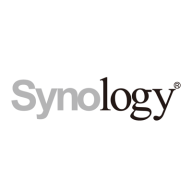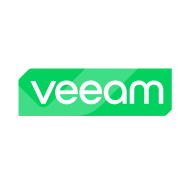

Veeam Data Platform and Synology DSM both compete in the data protection and management space, with Veeam having an upper hand due to its comprehensive feature set and robust enterprise offerings.
Features: Veeam Data Platform offers comprehensive features like simplified management, integration with VM environments, robust backup, and instant recovery. It is known for its ease of installation and reliable backup processes. Synology DSM is geared more towards basic storage and file management, providing a user-friendly experience but lacking the extensive features found in Veeam, making it suitable for small to medium businesses.
Room for Improvement: Veeam Data Platform could expand its platform support to include more Linux systems and improve responsiveness in technical support and replication procedures. It also suffers from complex licensing issues. Synology DSM should enhance its security during backups, improve its user interface for more intuitive interactions, and better handle VMware and Hyper-V clusters.
Ease of Deployment and Customer Service: Veeam offers deployment flexibility across on-premises, public, private, and hybrid clouds, accommodating various needs. It is lauded for its professional and responsive customer service. Synology DSM provides predominantly on-premises solutions with limited deployment options and could improve its support documentation.
Pricing and ROI: Veeam is cost-effective compared to competitors, providing a good balance between functionality and price, with straightforward licensing based on CPU socket. It's ideal for enterprises seeking reliable data protection with significant ROI. Synology DSM is affordable for SMEs, despite higher initial hardware costs, offering good ROI for simpler use cases.


Veeam Data Platform ensures comprehensive data resilience by offering secure backups and intelligent data insights, catering to the complexities of modern data management.
Veeam Data Platform empowers businesses with reliable data protection, orchestrated recovery, and streamlined management. Providing peace of mind, it guarantees data is secure, available, and effortlessly recoverable. Organizations benefit from features such as instant recovery, simplified management, and compatibility with virtual environments. While it shines in backup and restore capabilities, it calls for improvements in integration with physical servers and enhanced cyber security features.
What are the key features of Veeam Data Platform?Organizations in industries like finance, healthcare, and manufacturing utilize Veeam Data Platform for critical data management, ensuring business continuity and disaster recovery. Employed in securing both virtual and physical workloads, Veeam integrates cloud storage for enhanced scalability and efficiency.
We monitor all Backup and Recovery reviews to prevent fraudulent reviews and keep review quality high. We do not post reviews by company employees or direct competitors. We validate each review for authenticity via cross-reference with LinkedIn, and personal follow-up with the reviewer when necessary.